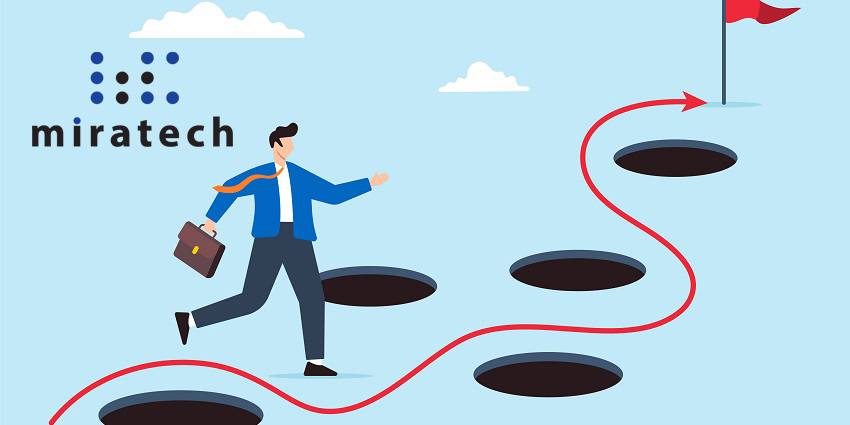Last week, Genesys and Salesforce announced their coordinated CCaaS-CRM platform.
Met with much fanfare, the CX Cloud from Genesys and Salesforce is a significant step for platform convergence across the customer experience space.
Yet, in terms of immediate customer value, for Michael Fauscette, Founder, CEO, & Chief Analyst at Arion Research, two facets of this announcement stand out.
“First, more data is flowing into the Data Cloud, which brands absolutely need to make these new generative AI tools work,” he says.
Second, the number one complaint amongst customers is still that you don’t know who they are across all of these silos, and this is a play that finally says: “We can provide this unified and bidirectional data flow across all these interactions.”
To unlock these benefits, Genesys and Salesforce have broken the boundaries of traditional CCaaS-Salesforce integrations. Here’s how.
The Evolution of Salesforce-CCaaS Integrations
For many years, CCaaS providers built integrations with Salesforce via its Open CTI.
Salesforce is no longer updating this integration mechanism, but many vendors still offer it as a way of fusing their CCaaS platform with Service Cloud.
After all, it meets many contact center requirements. Yet, there are downsides. These include confusing duplicate features, siloed data, extensive configuration, and the inability to leverage Salesforce’s latest Einstein AI innovations across both platforms.
The next integration method, Service Cloud Voice, solved the latter issue.
Released via a partnership with AWS, Service Cloud Voice allowed customers to augment the CRM with Amazon Connect’s telephony and other features.
Soon after, Salesforce sent out the same set of APIs to many of its CCaaS partners – including Genesys, Odigo, and Vonage – enabling these CCaaS vendors to offer similar integrations.
Yet, despite these tighter integrations, Genesys spotted a more significant opportunity to create a coordinated platform that pre-packages and serves the benefits of Genesys and Salesforce on a plate.
That is where the CX Cloud from Genesys and Salesforce enters the fray.
A Coordinated Platform Built from Shared Customer Feedback
Genesys recognized the opportunity to do more than integrate with the available Service Cloud Voice APIs, creating a joint product team with the CRM leader towards the back end of 2022.
The product team started its work by engaging with some of the vendors’ 650+ shared customers.
That process involved bringing several of these customers into the same room and quizzing them on how the solutions could better interoperate.
By doing so, the team recognized the desire for coordinated agent and supervisor dashboards, merged AI platform features, unified channels, native configurations, single real-time data fabric, and other features announced at launch.
The platform combines all of this with ONE common data schema, ONE orchestration engine, ONE smart workspace, and ONE workforce engagement management (WEM) solution.
Giving her take on that proposition, Shelly Kramer, Principal Analyst at V3B, stated:
A strategic partnership between Salesforce and Genesys has been in place for the last decade, so this alliance is not new. But, this changes things, and I think it is incredibly attractive.
Also, Genesys suggests that customers will have a choice over which AI innovations – whether from the Einstein or Genesys AI suite – they’d like to overlay the platform.
For instance, they may add Genesys or Salesforce conversational AI into the environment.
Nonetheless, further details will soon come to life as the solution becomes generally available in October via the Salesforce AppExchange and Genesys AppFoundry.
Following that release, both vendors will continuously add capabilities to the platform.
Big Benefits for Genesys, Salesforce, and Customers
The move opens up more of the CCaaS market for Genesys, bringing new customer opportunities.
AWS previously benefited from such opportunities when it became the first vendor to integrate via Service Cloud Voice – until others pulled themselves alongside Amazon Connect.
However, this time, it will likely take longer for those rival providers to catch up. After all, a cooperative platform is much more complicated to build than an integration.
As such, Liz Miller, VP & Principal Analyst at Constellation Research, expects Genesys to benefit significantly from the move. Yet, she indicates that the value proposition for Salesforce may prove even greater.
“We’ve been hearing a cycle of news about Salesforce moving into CCaaS for a couple of years,” says Miller. “And I think this signals a realization that it’s really hard to build a CCaaS platform.
Now, suddenly, Salesforce has an expansion opportunity to meet that very specific mid-market, fast-moving enterprise that is doing well in the multi-channel engagement and communication for service arena but wants to do even better. How? By connecting their marketing, sales, and service ecosystem.
Indeed, the new platform not only brings voice right into the center of that ecosystem, but it also smuggles lots of data into Data Cloud.
Miller continues by suggesting that this “firehose of data” will maximize the value of Salesforce’s Einstein AI and GPT proposition.
“Get ready to turn on some new AI models that are going to have access to some very interesting, high-fidelity signals from customers,” she concluded.
The Start of Closer Vendor Collaborations In Customer Experience
The launch of the CX Cloud from Genesys and Salesforce excites Zeus Kerravala, Principal Analyst at ZK Research.
Indeed, the analyst acknowledged how the move “expands the definition, the scope of what each company does.”
Yet, it’s the cross-vendor, cross-platform collaboration that encourages him most.
“One of the issues I’ve had with the CX industry over the last few years is that every event I go to, everybody talks about the customer journey, but nobody really does the end-to-end customer journey,” stated Kerravala.
“There’s an expression amongst data scientists that good data leads to good insights. But, siloed data leads to fragmented insights. That’s what we’ve had in this industry for a long time.
Anybody that touches CX needs to think about how to create that single data set to help customers.
To get there, Kerravala calls for further close partnerships between contact center vendors, Salesforce, Adobe, and “even companies like Contentsquare, Quantum Metric, Sprinklr, and so forth.”
After all, Genesys has proven very service-focused and Salesforce very sales-focused in the past. But, by working together, both can cross more of the customer journey, expand their businesses, and add customer value.
With a growing emphasis on convergence in customer experience, let’s hope this partnership is the beginning of a broader trend that changes the industry and crosses its many tech subsets.
Listen to more insights from these excellent analysts as they join me on an upcoming episode of our CX BIG News Update.
To make sure you don’t miss it, subscribe to the CX Today Newsletter.










